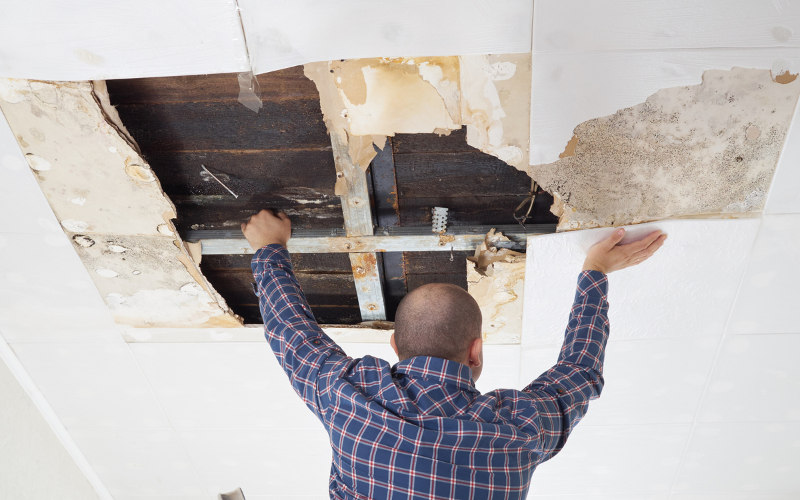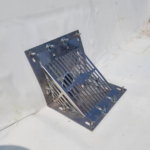
Most building owners and facility managers understand the importance of maintaining the commercial building’s flat roof. However, at some point in the roof lifecycle, leaks, degradation, and age make a roof replacement necessary. So, the owner goes out for bid to replace the roof. They typically obtain bids from at least 3 bidders. And just as often, all the contractors propose something different. So, unable to understand the differences between the bids, the owner looks at the price and the supposed warranty. The lowest bidders offer attractive deals, but the consequences of hiring them, without analyzing their bid and qualifications, can be costly in the long run.
Hunting for a roofing contractor can be a difficult task, considering the large expense of a new commercial roof and all the cost variables associated with commercial roofing. Costs vary based not just on the type of roofing material selected and the size of the roof. But other factors greatly affect costs such as the height of the roof (hoisting), complexity of the roof (penetrations, AC units, access for workers) and complexity of the logistical operation necessary to get the new roof installed. Complexity on a flat roof shows up in the number of roof penetrations such as pipes or HVAC units or in the number of roof sections. Logistical complexity is the story of the ground game necessary to get the personnel and materials to and from the roof in order to do the project. To show the variance, the logistics for a roof in the Chicago loop are extremely complex as opposed to a roof along the interstate in Kenosha, Wisconsin.
With all the variability among the proposed scopes of work, there will be additional variability among the contractors bidding on the work. The result is an owner or facilities manager who may not know the differences among the bids. When that occurs, customers often focus on the price and use it as the distinguishing factor. “If all contractors offer a 20-year warranty, I might as well take the low bidder”, is often the thinking. In this blog, we hope to point out some of the pitfalls of focusing on price—especially when there is a bidder who is much lower than all the others. We call this the LOW LOW bidder.
Before one gets to the price, it is prudent to analyze other important factors and rule bidders in or out based on these.
1. Scope of work.
Are the scopes of work among the bidders identical? There are literally thousands of ways to install flat roofing. When one accounts for all the options in insulation, coverboards, vapor barriers, attachment methods, and manufacturers, it is no wonder that property owners tend to gloss over the scope details and focus on the price. But differences in these components can account for large cost swings.
Take insulation as one example. If one bidder proposes R-15 insulation and another proposes R-30, the cost difference can be $3-$5 per square foot. If one bidder proposes a self-adhered vapor barrier and another proposes no vapor barrier, the difference can be $1.50 – $3 per square foot. So just in those two components, insulation, and vapor barrier, we see potential cost variability of $4.50 to $8 per square foot.
This illustrates why making sure that the scopes of work are the same is so important in comparing bidders. The low low bidder may have cut out a major roof system component.
2. Lower Quality Materials
Now that you are looking at the scope of work, be sure that the materials are actually specified and that the materials are of comparable quality among the bids. During the supply chain crisis in 2021, many companies went into the “recycled” insulation business. This is insulation torn off other buildings and shipped as “recycled”. “Recycled” could not be a more misleading term as there was no actual reconditioning process for the material. And there was no warranty. This is just one example of the ways that a contractor might cut corners while still offering insulation.
Using low-quality materials to cut costs fails to provide the same benefits of using high-end roofing materials. In our “recycled” insulation example, the consequences are disastrous because the insulation is one of the most important substrate boards in a new installation. Damaged, re-used insulation may make the new roof membrane prone to leaks, easily damaged by foot traffic, and prone to accelerated deterioration. Even worse, another roof replacement may be required sooner than expected. Moreover, the cheaply built roof will not have a warranty which covers the poor materials.
3. Bad Warranties and Low Workmanship Standards
Another consequence of hiring discount roofing contractors is the lack of professional standards. A qualified roofer adheres to industry standards, follows safety protocols and is knowledgeable about product details. A low low bidder is super low for a reason and often that reason is unskilled or untrained installers. As explained below, purchasing a high-quality warranty can ensure that the contractor has high standards.
Like materials, warranties come in all flavors. Your roof system is more than just the waterproofing membrane that you can see. The roof system includes the substrate boards, adhesives, fasteners, edge metal, accessories, vapor barrier, etc. The best warranties are issued directly from the manufacturer and cover the whole “roof system.” These are known as “system warranties” and often have titles like “20-year no-dollar-limit roof system warranty”. Such a warranty is much better than a “materials” warranty or a contractor’s warranty. A system warranty requires the contractor to use manufacturer branded components for the whole roof system. For example, the Carlisle warranty requires the contractor to use Carlisle branded insulation, fasteners, adhesives, and membrane. At the end of the job, the manufacturer sends an inspector to evaluate the job and make sure it is installed to the manufacturer’s specifications. The inspector often creates a punch list after the inspection and the manufacturer will not issue the warranty until the punch list is completed. Having the manufacturer inspection ensures that your contractor follows high standards.
At the other end of the quality spectrum sits the low low bidder and their worthless warranty. Often the low low bidder does not offer a system warranty. By avoiding the system warranty, the low low bidder can use generic or expired materials. All of this reduces the price. Because it is not a system warranty , the manufacturer does not inspect. Consequently, the roof may or may not be installed to industry standards. The lack of knowledge of proper details and the poor quality of workmanship would never satisfy an inspector.
- 1-drain detail installed on a condominium flat roof by low low bidder.
- 2-The same drain repaired by Reliable Roofing with proper materials and details.
We at Reliable Roofing have repaired many newer roofs installed by the low low bidder which fail very early in their lifecycle. The above photos show one such repair. In photo 1 we see what is supposed to be a roof drain. The installer had no idea what they were doing here. The drain was recessed deep into a parapet wall and did not function. In photo 2 you can see our repair and the use of proper materials to provide a functioning drain.
Asking for a manufacturer’s warranty costs more, but there is an added level of assurance that the roof will be installed to industry standards and will last as long as promised.
4. Proper Government Licensing
The low low bidding roofing contractor may lack the appropriate professional licenses and certifications, which are necessary to legally perform the work on a commercial or multifamily roof. Ask the following question:
Is the contractor license to do the kind or work which is proposed? In Illinois, for example, in order for a contractor to work on commercial buildings or large multifamily buildings, the contractor needs an “unlimited roofing license”. Most house roofers do not have this license and are not qualified to work on commercial or large multifamily buildings. Ask to see their state license.
5. Manufacturer Certifications
The leading roofing manufacturers will only issue a system warranty to a certified contractor who has an active installer agreement with that manufacturer. Building owners should ask the question:
What manufacturer’s products are you installing, and do you have an active installer’s agreement with that manufacturer?
These are easy questions and should be quickly answered.
6. Workers compensation Insurance for Roofers
A sure sign that your low low bidder is not qualified is when they cannot produce proof that they carry worker’s compensation insurance for roofing. Worker’s compensation for roofers is very expensive. Many low-quality contractors hide their roofing activities from their insurer by disguising the work as carpentry or some other trade. Thus, they avoid paying for workers comp insurance that actually covers roofing. Ask to see proof that the contractor carries workers comp insurance specifically for roofing. If they can’t prove it, they are not qualified to work on your building.
Reliable Roofing has High Standards and Works with the Best Manufacturers
Investing in a new commercial roof is a major decision that can impact not only the roof’s longevity but the employees, residents, or inventory under it. Owners and facility managers who work with Reliable Roofing know they have made the right choice. As a trusted roofing contractor, we deliver premium workmanship.
We are licensed, bonded, and insured. Our roofers are highly trained and experienced, utilizing only the best available materials and abiding by industry standards. As a result of our commitment to excellence in both workmanship and customer service, you can expect a quality roof installation.
We can install a variety of commercial roof systems from leading manufacturers such as Versico, Carlisle, Elevate (f/k/a Firestone), Johns Manville, WindSmart and Polyglass to name a few. Our technicians have extensive experience with TPO, PVC, EPDM, and modified bitumen. We always propose a system warranty and leave the decision for our customer to make as to whether the system warranty is worth the additional cost. They may not purchase it, but at least they know that we are qualified to deliver it.
Reliable Roofing offers top-notch customer service to every customer. Our specialists are available to answer questions or discuss concerns at any time regarding your roof replacement. We stand behind the high quality of our workmanship and are willing to provide an excellent warranty.
Commercial businesses in need of a quality roof replacement turn to the best in the industry: Reliable Roofing. We serve the commercial roofing needs of businesses, apartment buildings and condominiums in the entire Chicagoland area. Call us today at (815) 981-9898 to learn more about the area’s number-one roofing contractor.
 We support our Troops, Police & Freedoms
We support our Troops, Police & Freedoms


